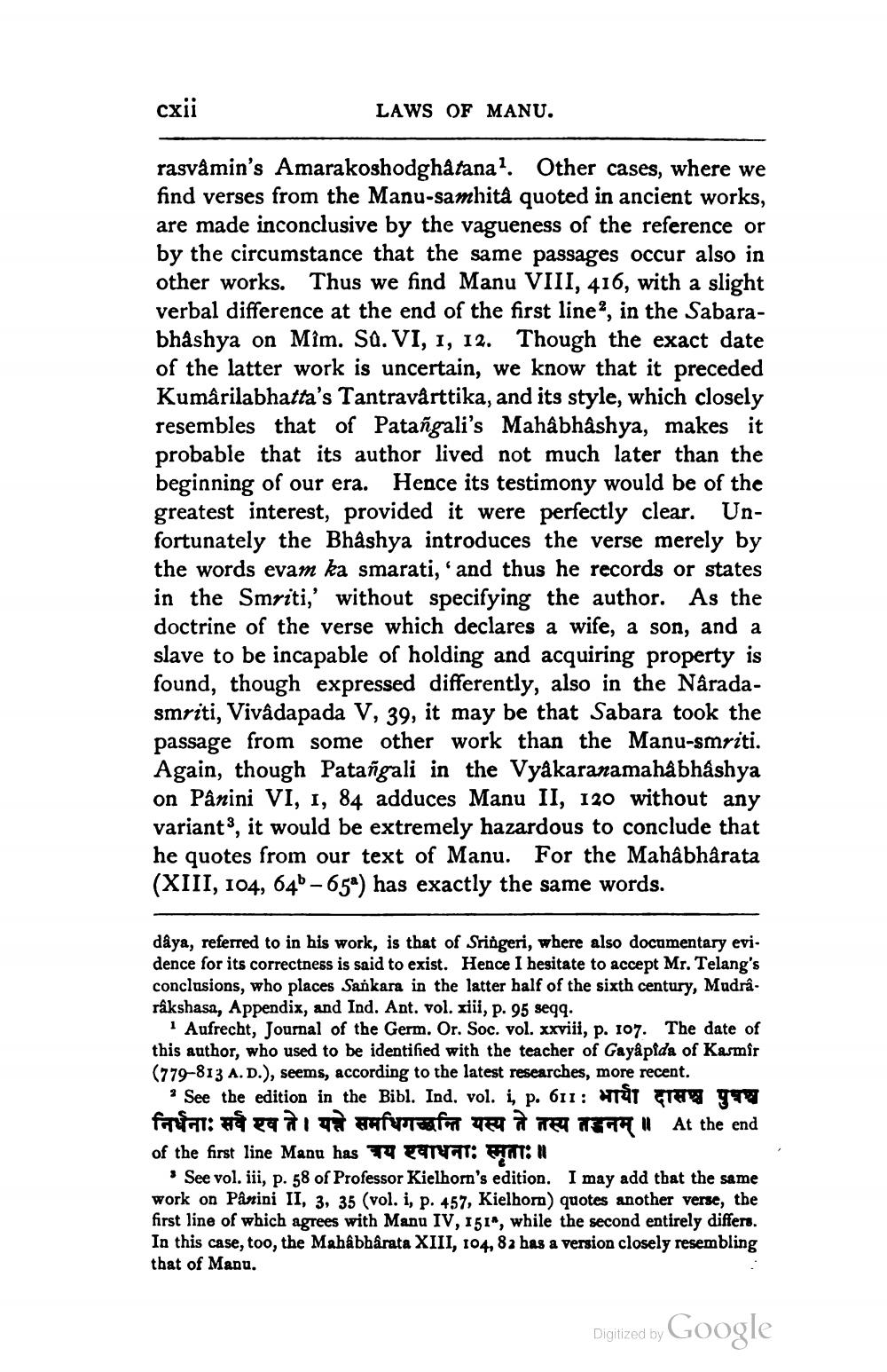________________
cxii
LAWS OF MANU.
rasvamin's Amarakoshodghâtana1. Other cases, where we find verses from the Manu-samhitâ quoted in ancient works, are made inconclusive by the vagueness of the reference or by the circumstance that the same passages occur also in other works. Thus we find Manu VIII, 416, with a slight verbal difference at the end of the first line2, in the Sabarabhâshya on Mîm. Sû. VI, 1, 12. Though the exact date of the latter work is uncertain, we know that it preceded Kumârilabhatta's Tantravârttika, and its style, which closely resembles that of Patangali's Mahâbhâshya, makes it probable that its author lived not much later than the beginning of our era. Hence its testimony would be of the greatest interest, provided it were perfectly clear. Unfortunately the Bhâshya introduces the verse merely by the words evam ka smarati,' and thus he records or states in the Smriti,' without specifying the author. As the doctrine of the verse which declares a wife, a son, and a slave to be incapable of holding and acquiring property is found, though expressed differently, also in the Nâradasmriti, Vivâdapada V, 39, it may be that Sabara took the passage from some other work than the Manu-smriti. Again, though Patangali in the Vyakaranamahâbhashya on Pânini VI, 1, 84 adduces Manu II, 120 without any variant3, it would be extremely hazardous to conclude that he quotes from our text of Manu. For the Mahâbhârata (XIII, 104, 64-65) has exactly the same words.
dâya, referred to in his work, is that of Sringeri, where also documentary evidence for its correctness is said to exist. Hence I hesitate to accept Mr. Telang's conclusions, who places Sankara in the latter half of the sixth century, Mudrârâkshasa, Appendix, and Ind. Ant. vol. xiii, p. 95 seqq.
1 Aufrecht, Journal of the Germ. Or. Soc. vol. xxviii, p. 107. The date of this author, who used to be identified with the teacher of Gayâpida of Kasmir (779-813 A.D.), seems, according to the latest researches, more recent.
gav
See the edition in the Bibl. Ind. vol. i, p. 611: निर्धनाः सर्व एव ते । यत्ते समधिगच्छन्ति यस्य ते तस्य तद्धनम् ॥ At the end of the first line Manu has त्रय स्वाधनाः स्मृताः ॥
* See vol. iii, p. 58 of Professor Kielhorn's edition. I may add that the same work on Pârini II, 3, 35 (vol. i, p. 457, Kielhorn) quotes another verse, the first line of which agrees with Manu IV, 151", while the second entirely differs. In this case, too, the Mahâbhârata XIII, 104, 82 has a version closely resembling that of Manu.
Digitized by
Google




